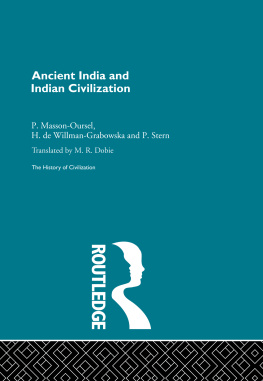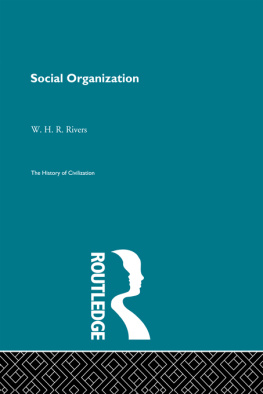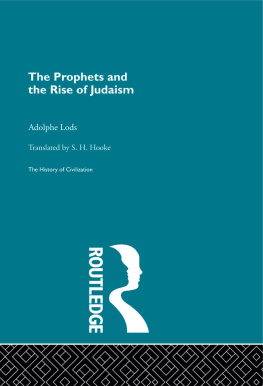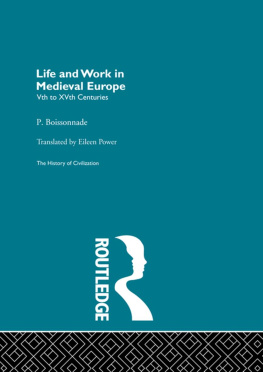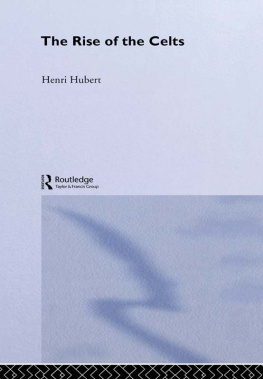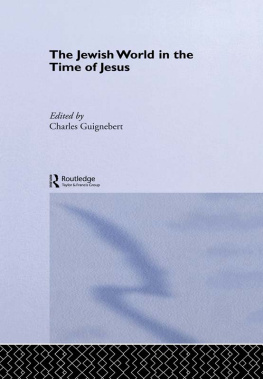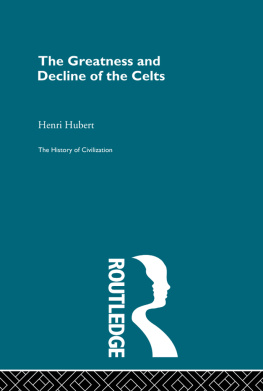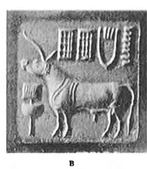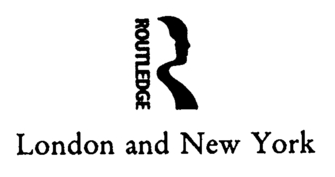General Editor C. K, Ogden
The History of Civilization is a landmark in early twentieth Century publishing. The aim of the general editor, C. K. Ogden, was to "summarise in one comprehensive synthesis the most recent findings and theories of historians, anthropologists, archaeologists, sociologists and all conscientious students of civilization." The History, which includes titles in the French series L'Evolution de l'Humanit, was published at a formative time in the development of the social sciences, and during a period of significant historical discoveries.
A. list of the titles in the series can be found at the end of this book.
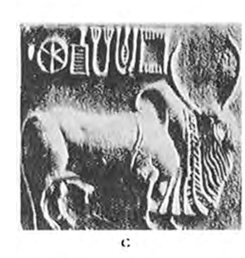
OBJECTS FROM MOHENJO-DARO A. Bust. B. Seal with bull. C. Seal with zebu.
( From Coomaraswamy, History of Indian and Indouesian Art )
Ancient India and Indian Civilization
P. Masson-Oursel
H. de Willman-Grabowska & P. Stern
Translated by
M. R. Dobie
First published in 1934 by Routledge, Trench, Trubner
Reprinted in 1996,1998 by Routledge
2 Park Square, Milton Park,
Abingdon, Oxon, OX14 4RN
&
270 Madison Ave,
New York NY 10016
Transferred to Digital Printing 2008
1996 Routledge
All rights reserved. No part of this book may be reprinted or utilized in any form or by any means electronic, mechanical, or other means, now known or hereafter invented, including photocopying and recording, in any information storage or retrieval system, without permission in writing from the publishers.
British Cataloguing in Publication Data
ISBN: 0-415-15593-2
ISBN Eastern Civilization (10 volume set): 0-415-15614-9
ISBN History of Civilization (50 volume set): 0-415-14380-2
Publisher's Note
The publisher has gone to great lengths to ensure the quality of this reprint but points out that some imperfections in the original may be apparent
Contents
| (by HENRI BERR), THE INDIAN GENIUS |
| INTRODUCTORY |
Maps
Table
The Indian Genius
IN the Forewords to the two volumes on China in this series, I have at once pointed out the unity of human history and justified the separate position which we have given to two ancient civilizations of the East and the Far East civilizations which are great, both in the numbers of the people whose native genius they express and in the brilliance or originality of certain manifestations of thought or art. The peoples of China and India were not, indeed, cut off from communication, material or intellectual, with the other sections of mankind here Persia acted as intermediary but they were nevertheless confined to very distinct regions, and did not give or receive to a great extent until a late period. Moreover, their fundamental conceptions present such marked differences from Western thought that recent writers have been inclined to describe East and West as two distinct worlds, whether they wished to show the irreconcilable antinomy between them or to resolve a contradiction which they regarded as merely provisional.
By very reason of its strong individuality not political, but psychological India, like China, is of the greatest interest in the history of mankind, which, as our colleague, Masson-Oursel, observes in a striking phrase, is the only real history.
History properly so-called, it is usually said, India has none. Let us be clear what the word " history " means. It has two meanings, one objective and the other subjective. History can be events, or the memory of events.
The Indians have lacked the memory of events, or rather they have lacked not writing, but the use of writing, to record them. " Very little writing was done, and that very late." Knowledge was " a personal gift and a caste privilege", and " every opposition was made to the spread of knowledge. Therefore it was not entrusted to writing, which was accessible to all " (p. 221), Moreover, the very mind of the Indians " seems to have a distaste for history " (p. 22). The details of past events do not interest them, or it would be better to say that their interest in the past is " not that of dispassionate curiosity but that of loyalty " ( p. 209); they turn to it for lessons and for claims to glory. The truth does not concern them.
The earliest works have no connection with history except that of the Bible or the chansons de geste.
So India has had no historians . But that is not all. There is also some objective truth in the tradition of " India without a history". It has no history, first, in the sense that its past does not offer clearly distinct phases, such as our own antiquity and Middle Ages or the periods before and after Christ. From the Aryan invasion to the coming of Islam, India is extraordinarily continuous in time. In space, on the other hand, it is extraordinarily discontinuous.
This immense region was peopled by a great number of immigrations. Although it is a peninsula with partly inhospitable coasts, defended on the north by the highest mountains on the earth, it is accessible by a few passes, chiefly in the west, and by sea, chiefly in the east.
A round-headed Mongolian element was added by continuous infiltration and occasional irruption. The philologists distinguish archaic languages ( Munda ), which are earlier even than Dravidian, and various Dravidian tongues, superimposed on and mingled with which is the contribution of the Indo-European immigrants. Aryan or Indo-Iranian is the original speech of the Indo-European group which settled on the plateau of Iran and the plains of the Indus. The Aryan spoken in India came to differ from that of Iran and to take various forms in India itself.
It was between the fifteenth and twelfth centuries B.C., according to J. de Morgan,
" The world of ancient India is a chaos, because of differences of race and language and multiplicity of traditions and beliefs " ( p. 59; cf. pp. 85, 210). Politically the country was broken up to an extraordinary extent, with a quantity of small republics (p. 88) alongside of monarchies which were always on the point of collapsing.
That, no doubt, is, from the objective point of view, the fundamental reason for saying that India has no history. Its past is too broken up so much so that even a social principle as strict and as characteristic of the country as that of caste-distinctions is an ideal rather than the universal rule ( p. 85). Apart from irruptions and invasions of Indo-Europeans, Huns, Turco-Mongols among the infinite multitude of facts of which the past of India is made up few have been sufficiently large and outstanding to be events. That happened when a " King of Kings", as in Persia, succeeded in founding an empire a " short-lived combination " ( p. 93) ; thus " the ancient, permanent solidarity which united India to Iran " asserted itself ( p. 59). Such figures as Asoka, one of the noblest in the history of the world, Kanishka, Samudragupta, Siladitya, stand out brilliantly against the neutral background of India's past.

